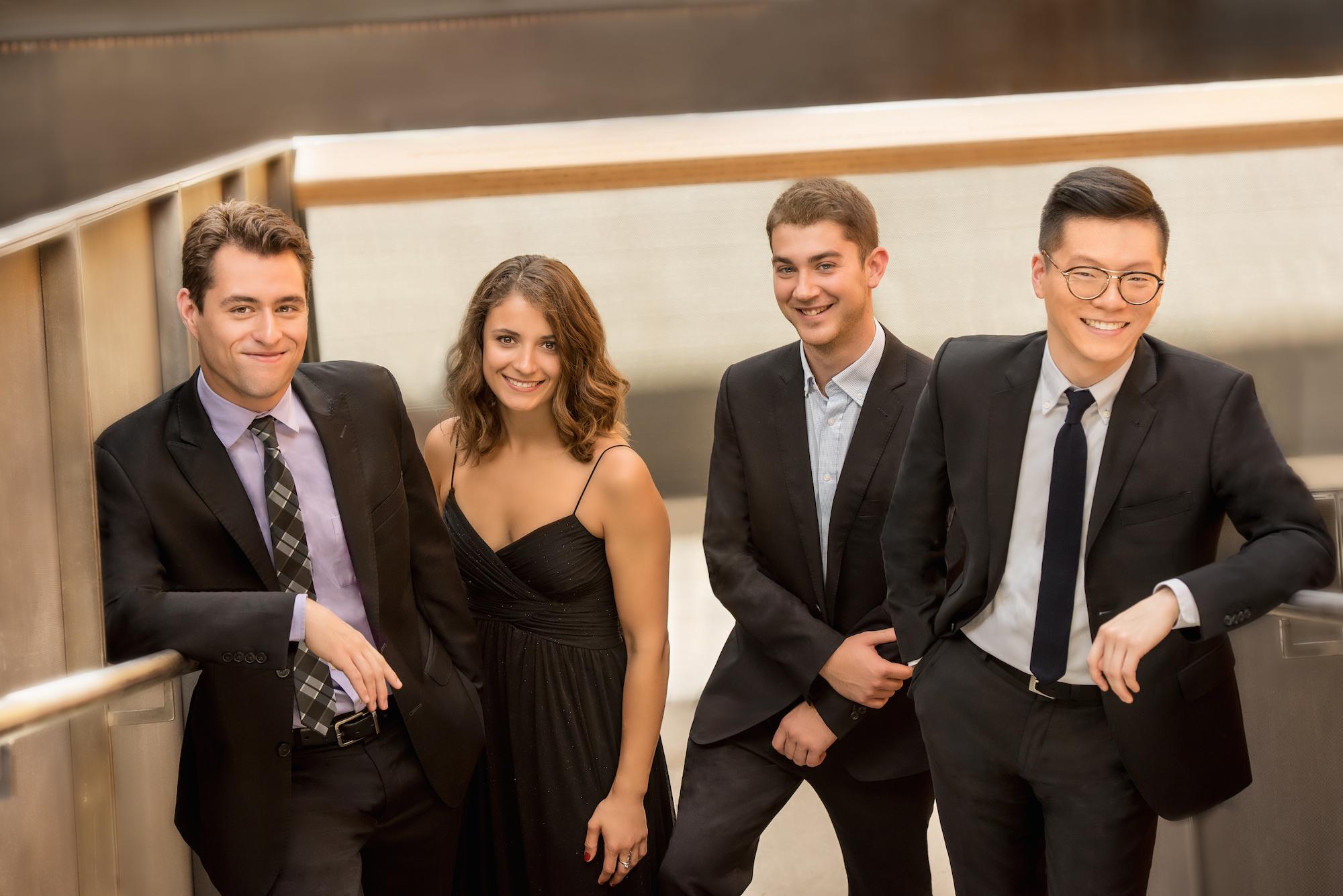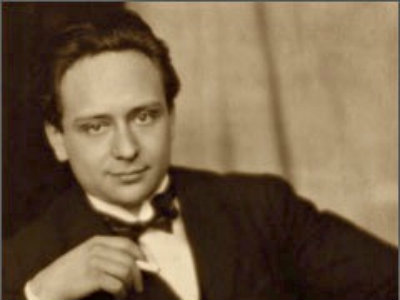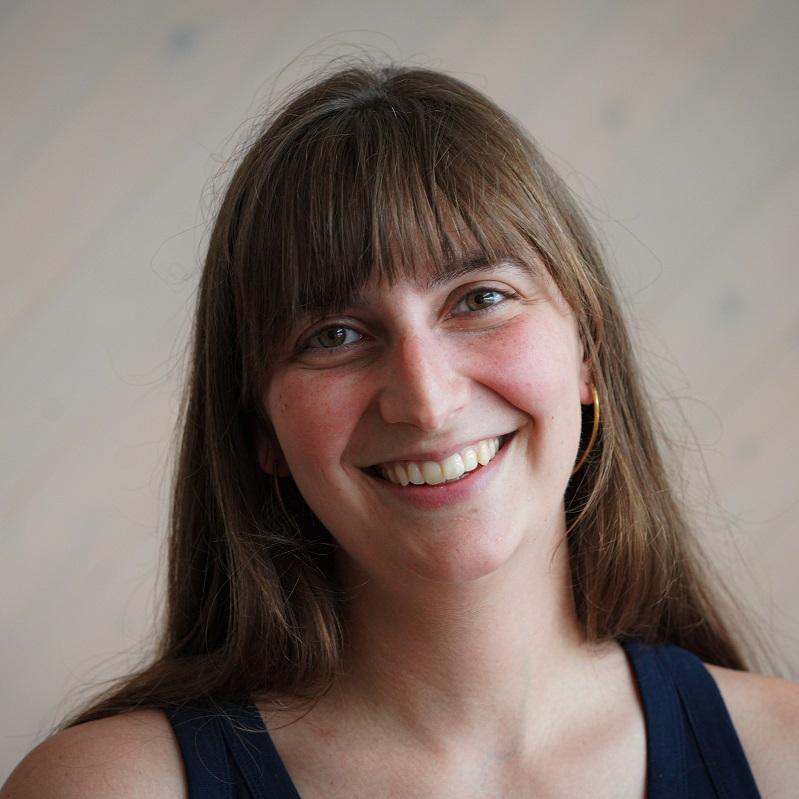

Jewish composers who suffered under Nazi rule during World War II and the Holocaust often found a way to continue making music despite their circumstances. In the case of Viktor Ullmann and Szymon Laks, the composers’ time in concentration camps actually helped inspire some of their most powerful music.
A recent album by the Dover Quartet, called “Voices of Defiance,” features music from the two composers.
Viktor Ullmann had all the makings to become one of the top composers in Europe, according to Camden Shaw, the Dover Quartet’s cellist. Ullmann was born in what is now the Czech Republic. He became a conductor and wrote piano music, choral works, opera and more.
“He’d worked with some of the most important musical minds of the century,” says Shaw, who researched the composers as the group learned their music. “He had, in a lot of ways, the best pedigree for a 20th century composer.”

That promising career was interrupted when Ullmann was sent to the Theresienstadt camp in 1942 -- an unusual camp, full of artists and musicians. The Nazis lets prisoners draw, paint and write there -- and used the place to trick outsiders into thinking concentration camps were civilized.
Ullmann composed more than 20 pieces of music in the camp -- some of which were performed there.
He was ultimately sent to the infamous Auschwitz death camp, but he knew what was coming. He entrusted the manuscripts of his music to a fellow prisoner. One of the manuscripts that survived was his String Quartet No. 3, which opens the Dover Quartet’s disc and has become a favorite in concert for the group.
Shaw says Ullmann was going for something extreme when he wrote the piece. Some parts of the score call for the musicians to play “with all of your strength.”
“You really should not holding back any of that violence from your instrument,” Shaw says.
The music is emotionally difficult to perform, and he says you can hear how fearless Ullmann was when you listen.
“That ferocious soul that he had is really amazing,” Shaw says. “It’s heartbreaking to witness somebody like that and still hear them through their music very clearly.”
The Dover Quartet started to perform Ullmann’s work in concert after a friend recommended it. The piece resonated with audiences -- and after those concerts, many listeners would tell them about another piece of music by a composer named Szymon Laks.
The group tracked down the piece and researched the composer. Laks was born in Warsaw. He studied mathematics, spoke five languages and accompanied silent films on the piano. In 1942, Laks was sent to Auschwitz. The camp had its own orchestra and Laks became its leader.
“The perversion of those orchestras was that they had to play upbeat, German marches while their friends and family would march off for manual labor and many times not come back,” Shaw says. “The real jarring juxtaposition of music and the uselessness of music in that setting really appalled him.”
Laks survived the war and lived to write more music, including the piece the Dover Quartet heard about at their concerts: his Third String Quartet. Shaw says the group fell in love with it.
“The way that he builds up this slow, painful brooding up into a screaming climax at the top -- we just could not believe the emotional impact of that music,” Shaw says.
There’s no proof Ullmann and Laks met one another in Auschwitz, but Shaw says their stories do intersect there. Laks’ memoir talks about a day when his orchestra received a set of music stands. A Nazi commander told Laks he acquired them specifically for the orchestra.
Laks recognized the music stands. They were from Theresienstadt. The train that brought the new stands also brought artists from there. And those artists -- including Viktor Ullmann -- had been sent to the gas chambers.
“It’s a heartbreaking connection and pretty dumbfounding that they were at least likely within 200 yards of each other for a moment or two that day,” Shaw says.
Related Stories
- 'A Voice For The Silenced' And The Composers Lost To The Holocaust
- How A Painter Murdered During The Holocaust Inspired A Composer's 'Memory' Music
- The Two Birthdays Of Denver Holocaust Survivor Jack Adler
What stands out to Shaw is the resilience and joy in Laks’ music, even through the tragedy he experienced. In fact, a lot the piece sounds upbeat -- as if it’s about liberation and survival more than the tragedy of the Holocaust.
The Dover Quartet thinks of the piece as a kind of catharsis for Laks.
“It’s his way of working through absorbing and also sort of hoping to move forward from what he’d experienced,” Shaw says.
When listeners experience the piece, Shaw says he hopes it reminds them it’s possible for people to think of others as less than human. He hopes this collection of music reminds listeners to learn from history’s mistakes and be good to one another.
Stream “Voice of Defiance” by the Dover Quartet, which includes Viktor Ullmann’s String Quartet No. 3, Szymon Laks’ String Quartet No. 3 and Dmitri Shostakovich’s String Quartet No. 2. You'll need a Spotify account, which is free, to listen.








